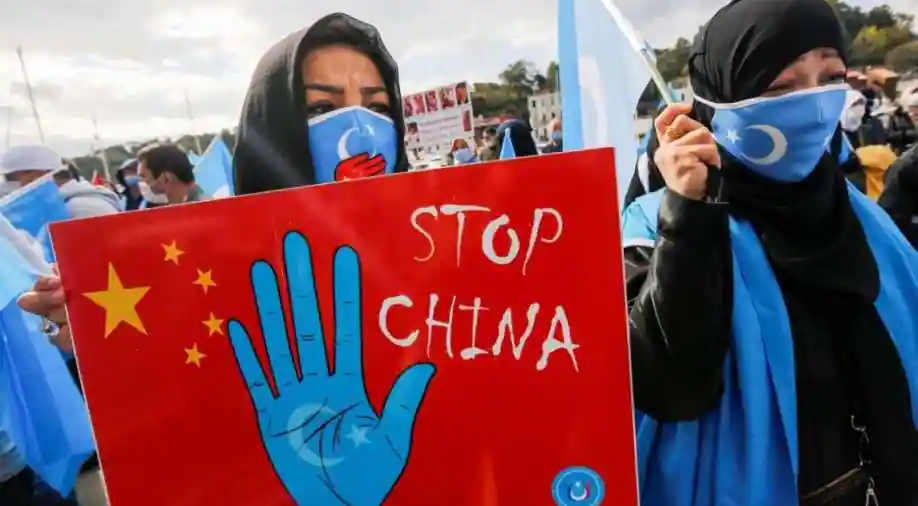The narrative of the Xinjiang Police Files, ought to be repeated. The data was handed to an international media consortium before being validated, examined, and selected by Dr Adrian Zenz, a specialist on China’s northwest Xinjiang detention campaign targeting Uyghurs and other largely Muslim ethnic minorities.
According to Zenz, the papers are solid proof of what is “perhaps the biggest internment of an ethnoreligious minority since the Holocaust… The new information emphasizes the character of this tragedy.”
The materials were received from an unidentified source who hacked into police systems in two Xinjiang counties populated primarily by Uyghurs and other minorities.
According to Zenz in a brief film on the files’ website, www.xinjiangpolicefiles.com, the files provided for the first time “a first-hand description of police activities within re-education facilities.”
There are roughly 2,800 photos of inmates and over 23,000 detention documents. Over 300,000 personal records were exposed in the compromised databases.
Zenz noted that the leaked speeches by senior Communist Party officials, including Chen Quanguo, who was Communist Party secretary of Xinjiang at the time the speeches in the leaked files were made, depict a “paranoid threat perception” and “the internal justification for why one has to move against an entire population.”
According to the records, the camps and jails are overcrowded, and Beijing will bankroll more of each. This, according to Zenz, “demonstrates how closely and intimately the central government has been involved in this crime from the start.”
According to Zenz, Beijing’s overall aim is to “break the back of whole ethnic communities” by interning them. The elderly and “important” individuals are kept in the camps, according to data, since both groups are sources of “cultural and spiritual wisdom” from which newer generations learn.
“It’s a comprehensive assimilation program, absorbing an entire ethnic group,” Zenz explained.
The importance of changing the Uyghur population – now and in the future – into completely integrated Chinese citizens who believe in the Chinese Communist Party and its policies is highlighted throughout the speeches and documents in the files.
In summary, the “de-extensification” approach is intended to replace minds rather than simply alter them. All previous belief systems must be erased and replaced with the CCP’s idea of a decent Chinese citizen.
The irony of this strategy and purpose is that ordinary Chinese citizens overseas frequently refuse to integrate into other cultures. From London to New York to Sydney to Singapore, substantial numbers of mainland Chinese people solely socialize with other mainland Chinese people.
Contact with inhabitants of their host country is usually confined to the bare minimum essential to complete one’s duties, whether employment or study. Of course, there are exceptions, but they are in the minority.
The Chinese government strongly condemns anybody who criticizes ethnic Chinese living overseas for upholding their native country’s traditions and language.
However, in the eyes of CCP authorities, Uyghurs do not deserve the same respect for preserving their cultural and religious traditions in their own homeland.
The fact that China’s government has developed a domestic security protocol to round up people deemed “extremists” solely on the basis of their religious and cultural beliefs, and then force them into a program to remove and replace their identities in order to neutralize a perceived threat to the state, is already the stuff of nightmares.
However, the program’s suggestion that the re-educated individual will subsequently assimilate into the society of people who pushed an alien identity upon the victim is ironic, to say the least.
How can a civilization that cannot readily absorb outsiders successfully influence them to do so?
The answer is an unequivocal no. Mainland Chinese society, predominantly Han Chinese, is still exceedingly insular and conservative, despite everything that opening up to the outside world has done to expose its residents to other nations and cultures.
It is often opposed to other people’s customs in keeping with its own. Relationships with others outside the construct are frequently difficult, and the Chinese side frequently tries to dominate in this scenario, by coercion.
Chen was appointed party secretary of Xinjiang in June 2018, making him the most powerful person in what is intended to be an autonomous province. His ideas on the techniques and procedures the state may employ to defuse the threat of Islamic terrorism contain specific language designating cultural genocide.
Chen praised the work that had previously been done to eliminate the “sources of extremism” at the time, saying that “the ‘Four Breaks’ [breaking lineages, breaking roots, breaking links, breaking beginnings] had been done properly.”
In other words, China has succeeded in eliminating the family, cultural, religious, historical, and even geographical links of the Uyghur and other Muslim minority people in Xinjiang, according to Chen.
Nonetheless, Chen emphasized that more has to be done. Chen, however, is no longer in charge of Xinjiang. Ma Xingrui took his post in early January 2022.
Despite indications that Ma is attempting to repair the severe reputational damage inflicted on China as a result of the camps, which have now been proven by the Xinjiang Police Files to have been run by a heavily armed police force with military-grade weaponry behind multiple layers of secure walls, hundreds of thousands, if not millions, are still suspected to be in detention, or their whereabouts are unknown.

